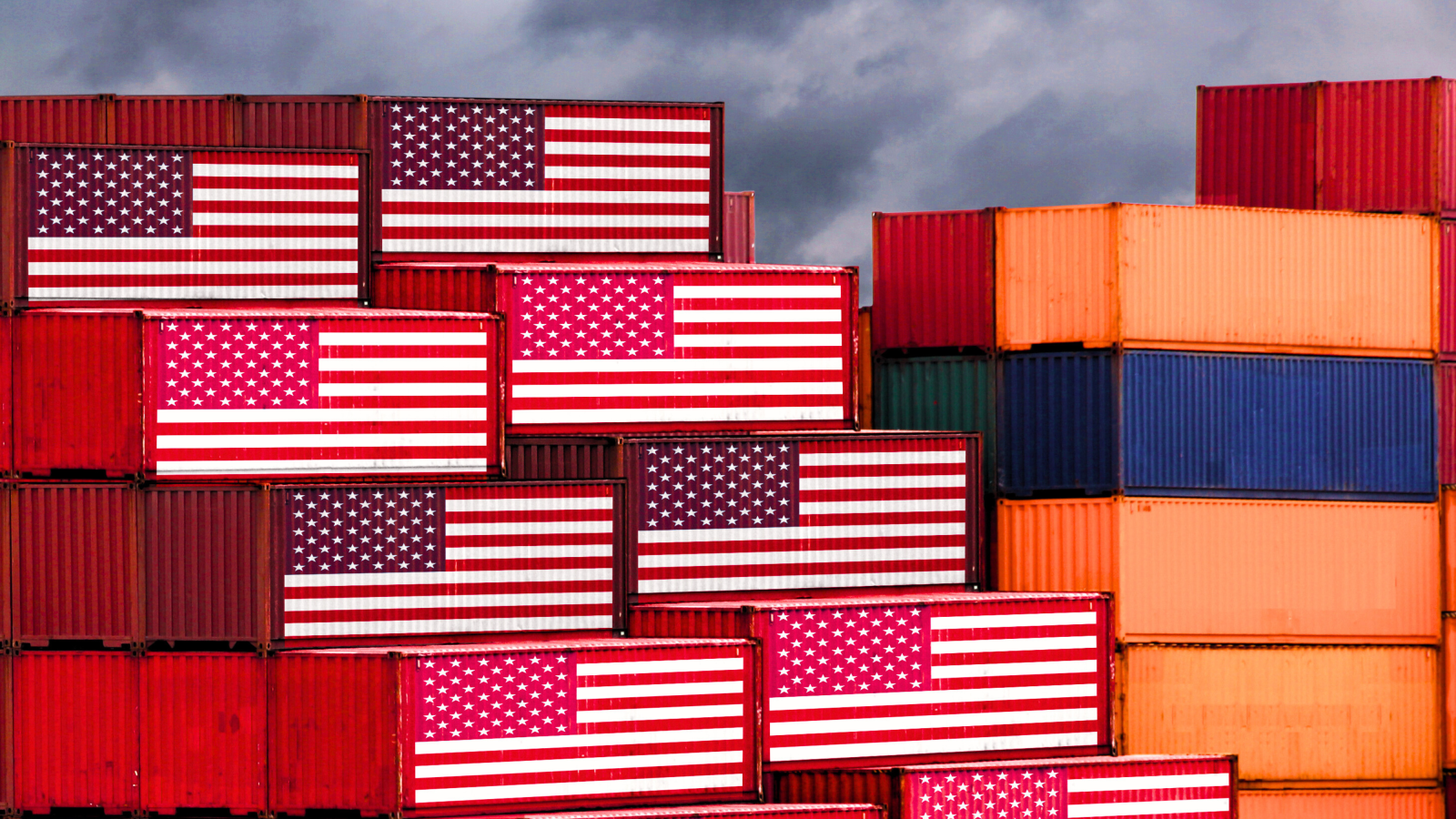
The ECGI blog is kindly supported by

When Politics Shape Trade
Foreword: Navigating the New Trade Landscape
As this piece goes to publication in April 2025, we find ourselves in a period of significant upheaval in global trade relations. The return of the Trump administration marks a new era of America's trade policy landscape, with renewed tariff threats, challenges to multilateral trade frameworks, and an emphasis on bilateral deal-making. While our study analyzes data from an earlier period, the core insights about CEO partisanship influencing trade decisions remains highly relevant today. The intensified political polarization around trade issues and the administration's assertive stance on economic nationalism could amplify the partisan dimension of corporate supply chain decisions. At the same time, the definition of "friendly" nations may itself be shifting, creating a more complex calculus for corporate leaders navigating these waters. Our findings about the role of politically diverse boards in tempering partisan decision-making take on renewed significance in this context. As we look ahead to a time when more stable trade relations might reemerge, understanding these dynamics will be crucial for both corporate governance and policy development. The research presented here offers a foundation for that understanding, even as the trade landscape continues to evolve in unprecedented ways.
_________________________
Recent years have witnessed escalating geopolitical tensions and rapidly shifting global alliances, which pose significant challenges to global supply chain operations. Against this backdrop, policymakers have pushed for “friendshoring”: shifting trade relationships toward politically aligned countries and away from adversarial ones. Advocates include Janet Yellen, who argues that this approach promotes supply-chain stability and protects national interests. In Ayyagari, Gao, and Ma (2025), titled Partisan Friendshoring, we investigate to what extent firms follow the friendshoring strategy in response to geopolitical tensions, and how such responses depend on corporate leaders’ own political leanings. The findings reveal that the partisanship of CEOs plays a significant role in shaping corporations’ trade decisions in response to geopolitical tensions, with sizable consequences for firm value.
The Political CEO and the Global Supply Chain
We utilize a novel combination of data: firm-level maritime import records, the ideological distance between the U.S. and its trading partners based on United Nations General Assembly voting, and CEO political affiliations derived from voting records in the national primaries. We classify CEOs as politically aligned if they are registered with the same party as the sitting U.S. President (e.g., Democrats under President Biden, or Republicans under President Trump) and misaligned otherwise. These datasets allow us to examine how firms adjust their imports in response to changes in geopolitical alignment—particularly in the aftermath of foreign elections that move a country closer to or further from the United States.
Our findings are striking: First, U.S. firms significantly alter their sourcing decisions in response to geopolitical tensions, reducing imports from countries that have become more ideologically distant from the U.S., while increasing imports from countries that have become friendlier. Such responses are consistent with the “friendshoring” strategy.
Second, firms’ responses differ widely depending on their CEOs’ partisanship. The friendshoring effect is more pronounced for firms led by politically aligned CEOs, while weaker among misaligned ones. This is not a marginal phenomenon. A standard increase in ideological distance between a foreign country and the U.S. is associated with a 9% greater decline in the import volume from that country by firms with aligned CEOs than by firms with misaligned CEOs. Aligned CEOs are also 2 percentage points more likely to stop importing from the country compared to misaligned CEOs. In response to foreign elections that shift a country’s alignment away from the United States, aligned CEOs cut imports by up to 40–50% more than misaligned CEOs.
Notably, this behavior does not appear to be driven by party identity per se—whether the CEO is a Democrat or Republican is largely irrelevant. What matters is whether the CEO is aligned with the current administration. The partisan dimension of friendshoring, then, is not about ideology in the abstract, but likely about alignment with U.S. views and foreign policies.
Shareholders Notice—and Penalize
The market does not view partisanship-driven friendshoring as value-neutral. On the contrary, firms with aligned CEOs experience significant equity losses—up to 2.6 percentage points—following elections that increase the ideological distance between their source countries and the U.S. These losses are concentrated among firms with meaningful exposure (i.e., those sourcing at least 5% of imports from the election country). Misaligned firms with similar exposure do not experience comparable losses. These results suggest that shareholders seem to interpret politically motivated supply chain adjustments not as prudent de-risking, but as economically suboptimal behavior.
The Role of the Board
Does the board of directors play a role in disciplining and moderating CEOs’ political-driven import decisions? We indeed find a significant effect: CEO partisanship no longer drives friendshoring decisions when the vast majority of board members are affiliated with the opposite political party. In these cases, aligned firms do not lose more valuation than misaligned firms following distance-increasing elections in their source countries either. This finding highlights the role of internal governance in constraining politically motivated corporate behavior and suggests that greater ideological diversity in the boardroom may help mitigate the risk of partisan-driven decision-making.
Why Does CEO Partisanship Influence Global Sourcing Strategies?
We analyze several explanations.
Risk Perception: Aligned CEOs may perceive greater geopolitical risk when a country moves out of ideological alignment with the U.S. Consistent with this argument, we find that aligned CEOs express more concerns about geopolitical tensions in earnings calls following adverse foreign election outcomes, relative to their misaligned peers.
Political Signaling and Nationalism: Some CEOs may be engaging in political signaling—a form of corporate patriotism or partisan loyalty. Evidence for this hypothesis emerges from analyses showing that the effect of political alignment on trade decisions is significantly stronger among CEOs who contribute to veteran-related causes, a plausible proxy for nationalistic orientation.
Economic Self-Interest: Aligned firms may engage in friendshoring to protect political rents such as government contracts. However, firms with procurement contracts do not appear to engage in more friendshoring than those without, casting doubt on the economic-interest explanation.
Corporate Influence on Geopolitics: Finally, it is possible that certain large firms may be able to influence geopolitics, and in turn receives preferential or antagonistic treatment from their foreign suppliers. We do not find this to be the main driver of our results, as our effect is present among small firms as much as large firms.
Implications for Governance and Policy
Partisan Friendshoring provides compelling evidence that in today’s corporate landscape, corporate leaders’ political views profoundly influence value-relevant operational decisions. The findings raise important questions about the intersection of political identity and corporate strategy. From a governance perspective, the evidence underscores the need for politically diverse boards and oversight structures that can discipline CEO discretion, particularly in areas where geopolitical risk is high. From a policy standpoint, the research invites a reevaluation of friendshoring as a normative recommendation. If firms are already responding to geopolitical tensions through a partisan lens, then formalizing or encouraging friendshoring strategies may unintentionally entrench political bias in corporate decision-making.
_______________
By Meghana Ayyagari (George Washington University), Janet Gao (Georgetown University) and Pengfei Ma (Singapore Management University)
The ECGI does not, consistent with its constitutional purpose, have a view or opinion. If you wish to respond to this article, you can submit a blog article or 'letter to the editor' by clicking here.


